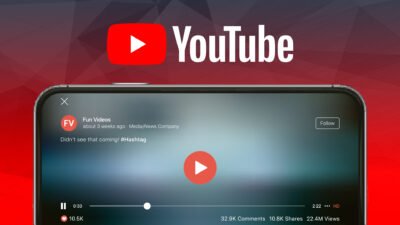YouTube will block links in Shorts amidst spam pandemic

Recent years have seen a rise in the prevalence of scam links in YouTube comments, with many victims falling prey to such criminal actors every day. As of August 31st, YouTube will start to disable hyperlinks in short comments, descriptions, and vertical live broadcasts to stop the spread of these links.
This action is a reaction to YouTube Shorts being a focus point for criminals who use generative AIs to advertise malware disguising itself as free versions of expensive programs like Adobe Premiere Pro. Additionally, the business will eliminate clickable social media symbols from desktop channel banners.
“We know that links are an important way for creators to share information and recommend products or brands to their communities, so we’re actively working on safer ways for creators to include important links in their content,” stated YouTube.
Impact on genuine creators
YouTube is introducing an update that will allow creators to have a designated space on their channel profiles, that will encompass links to websites, social profiles, retail stores, and other platforms. While these changes may worry legitimate short-form creators who frequently rely on links to engage their audience and monetize their content through endorsements, YouTube is introducing an update. It’s crucial to remember that producers can only use this function if they follow the YouTube community guidelines.
Additionally, makers of Shorts can keep including links to their lengthy videos. The business has stated that they are developing a fresh, improved solution that will go on sale in September.
YouTube’s initiatives to stop fraud
Given the scope of the scam link problem, it may seem that YouTube’s efforts are insufficient, but recent system and policy updates on the site have significantly increased the removal of channels that impersonate other users, with a 35% increase in the first quarter of 2023 compared to the same period the year before.
Also noted by YouTube was a large rise of 200% in the usage of their new “increase strictness” function, intended to identify and allow producers to examine potentially spam or improper comments.
RS News or Research Snipers focuses on technology news with a special focus on mobile technology, tech companies, and the latest trends in the technology industry. RS news has vast experience in covering the latest stories in technology.










